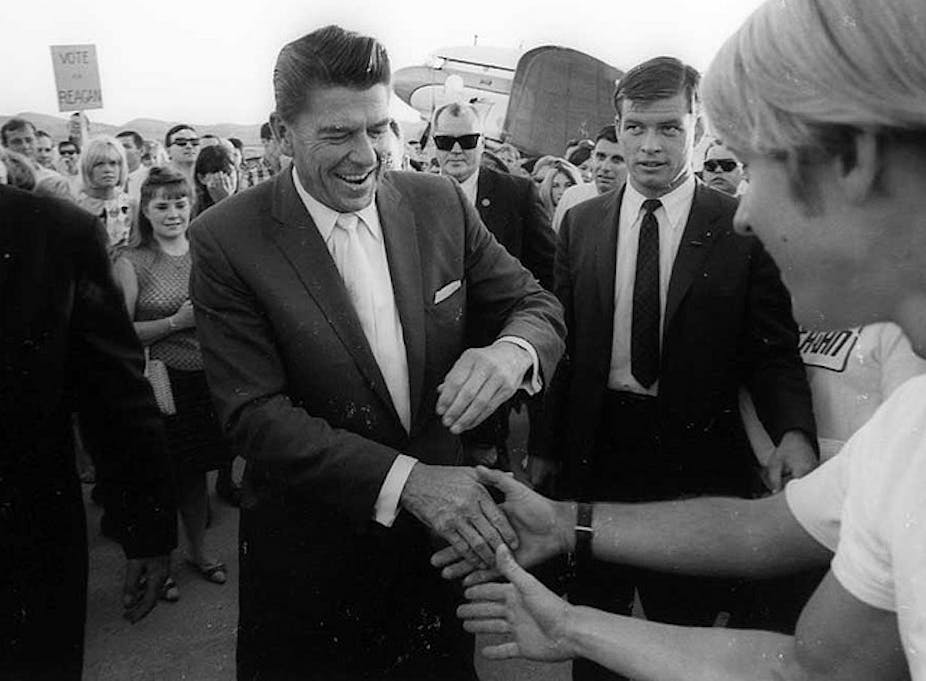In a recent enquiry into alleged sexual abuses by priests, Cardinal George Pell said:
Mistakes were made by me and by others in the church that resulted in driving Mr Ellis and the archdiocese apart rather than bringing healing.
In a 2011 interview with the late Sir David Frost, the British prime minister, David Cameron, observed this about UK Middle Eastern policy:
Yes of course mistakes were made and of course you know what happened at Guantanamo Bay, there were mistakes made.
In 1987, US president Ronald Reagan said in a speech about the Iran-Contra affair:
And certainly it was not wrong to try to secure freedom for our citizens held in barbaric captivity. But we did not achieve what we wished, and serious mistakes were made in trying to do so.
In 1997, US president Bill Clinton apologised for holding a meeting with bankers where a Democratic fund-raiser was present:
Mistakes were made here by people who either did it deliberately or inadvertently.
So what’s the big deal with an innocuous phrase such as “mistakes were made”? We can recognise it as a weasel word if we refresh our memories on active and passive voice in verbs. Grammar alert!
I gave the book to her (active voice).
The book was given to her by me (passive voice).
The passive is often used in weasel constructions, where the intent is to conceal identity and responsibility. It is sometimes called the evasive or sneaky passive, the past exonerative, or the non-apology apology.

When we combine the sneaky evasive passive with loaded disjuncts such as “hopefully” (code in some situations for “I have no hope at all; go away and don’t bother me”), this is what we get: a continuum from open and honest communication to sneakiness and a squirming out of responsibility.

This is the Google Ngram Viewer, which scans literature over time for usage of phrases. We plugged in “mistakes were made” (sneaky passive voice) versus “I made mistakes” (honest active voice):

It appears that people have been covering their arses for some time, peaking some time between the US Prohibition on booze and the Great Depression.
The concept is becoming so famous that US psychologists Carol Tavris and Elliot Aronson wrote a book in 2013 entitled Mistakes Were Made (but Not by Me): Why We Justify Foolish Beliefs, Bad Decisions and Hurtful Acts. The authors argue that we play mind games with ourselves to avoid blame, games such as cognitive dissonance (a form of denial), cognitive biases (mind games we play on ourselves), confirmation bias (where we conveniently edit out facts that contradict our prejudices), and the Somebody Else’s Problem Syndrome (great for keeping that nasty global warming stuff at bay).
Continuing in this vein, what do Gareth Evans and Justin Timberlake’s agent have in common? They’ve both used the kissing cousin of the sneaky passive, the non-apology apology.
In 1991, an Australian TV show, Embassy, ruffled some feathers in Malaysia, so foreign minister Evans (as he was then) said that he “wanted to acknowledge fault where such acknowledgement is appropriate”, a diplomatic piece of spin described by the New York Times as a non-apology apology.
“I am sorry if anyone was offended by the wardrobe malfunction during the halftime performance,” Justin Timberlake’s agent said.
We get two spins for the price of one here: a non-apology apology, and a laughable euphemism of “wardrobe malfunction” to describe Timberlake pulling part of Janet’s Jackson’s bra panels off, revealing a nipple (“Nipplegate”) on that good old family show the 2004 Superbowl.
There are variations on such tricks: US Republican senator Bob Dole tried to defend Reagan by referring to his mistakes:
… [admitting mistakes] implies that the President shares blame, that he knows the buck stops at his desk.
The gormlessness of the evasive passive is easily beaten by US president Harry S. Truman’s straight-shooting direct active:
The buck stops here.
So, then, how do we inoculate ourselves against being conned by powerful people using the sneaky passive? We do two things: read George Orwell’s 1946 Politics and the English Language (still oh so relevant) and teach students about the sneaky passive by actually teaching grammar.

